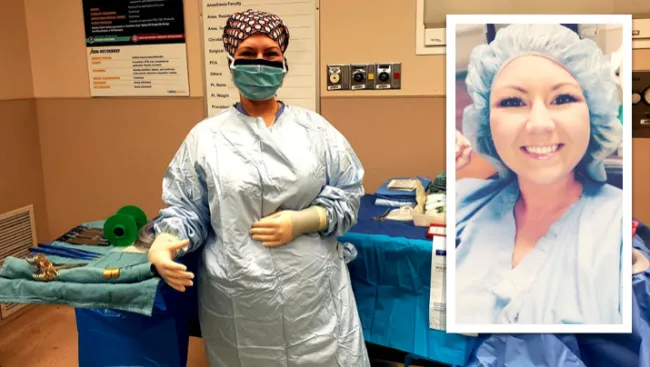
What Does a Surgical Technologist Do?

Responsibilities
- Prepare the operating room for surgery
- Maintain a sterile environment
- Pass instruments and other supplies to surgeon during surgery
- Set up robotic surgical equipment (if applicable)
- Count and keep track of all surgical instruments during and after surgery
- Take inventory of supplies
- Maintain records of procedures
How To Become a Surgical Tech: FAQs
The bottom line:
If you want to be in a fast-paced hospital career, this job will get you there without spending time and money to earn a bachelor’s degree. This often overlooked position is a hidden opportunity for someone with the right skills. If you’re interested in taking the next step, check out the training programs offered by SkillPointe’s partners.

Why becoming a surgical tech is worthwhile
To learn about healthcare careers, Shana Frazee took a job in hospital housekeeping so she could see what happened in the different departments. She shadowed a doctor and soon learned about surgical technology.
“I had never heard of one before, but I instantly became interested in the position,” she says.
She trained to become a Certified Surgical Technologist (CST) and has been loving this fast-paced role ever since.
Learn more about this satisfying job that keeps the surgery room running smoothly.
Are there certification requirements for this career?
Find Surgical Technologist Training In Your Area
Need help reaching your goals?
Explore our Financial Resources page for scholarships, FAQ answers and student support services.

